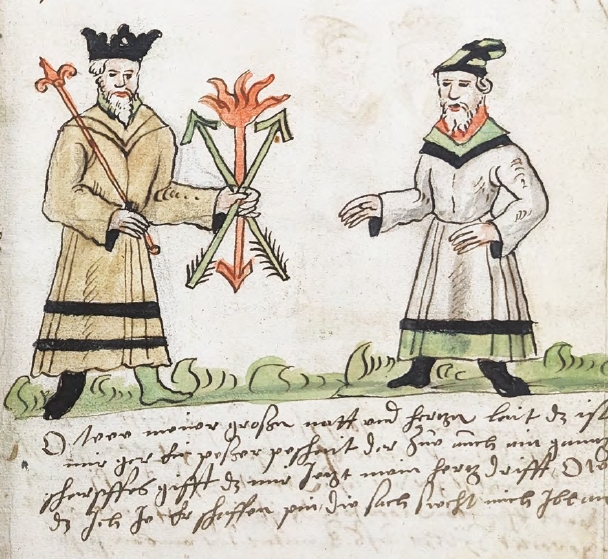Unistus võimutäiusest
Raamatu „Alkeemia ajaloost“ ilmumise puhul
DOI:
https://doi.org/10.15157/tyrtar.v13i1.24242Abstract
A Dream of Full Power
On the Occasion of the Publication of the Book About the History of Alchemy
Having grown up in a society where predicting the future was among people’s favourite activities, the author begins by stating that by now, we can daily experience the level of absurdity that the development of humanity can reach. Next to powerful great authorities, we can constantly find a smaller order of petty rulers, who have discovered that the fate of the world mostly depends on their will. What alchemists dreamed of for centuries has now become a reality.
Artifacts that have survived since the days of Babylon prove humanity’s age-old interest in predicting the future. Particularly perceptive persons came to the opinion early on that one can get an idea of the things to come after learning about the past and the present. Hence the fact that worldly phenomena have always been studied in order to get them under their „control”. The dream of wielding full power accompanies the humanity’s entire history of development.
The more knowledge, the greater the power grows. Alchemy, largely because alchemists’ primary focus was practical from the start, has throughout the ages played quite a prominent role in the study of the earthly world. This has happened despite all kinds of setbacks and repressions – if only to recall the accusations of fake gold production.
Regarding the alleged achievements of the alchemists, the author of the review recalls that the ability to believe in various things of a person living in the Middle Ages knew no bounds -- but he wisely does not draw a parallel with today’s social media consumers.
As a field of knowledge, alchemy is an extremely exotic and, (this should be most important), an endlessly vast and varied phenomenon. Kurmo Konsa and Meelis Friedenthal’s History of Alchemy is, according to the reviewer, a very concise presentation of extremely abundant material. Undoubtedly, it is a worthy attempt to introduce alchemy to Estonian readers, but a deeper explanation of the topic and the provision of a broader context that is essential for its understanding will have to wait for the next book by the same authors.
Downloads


